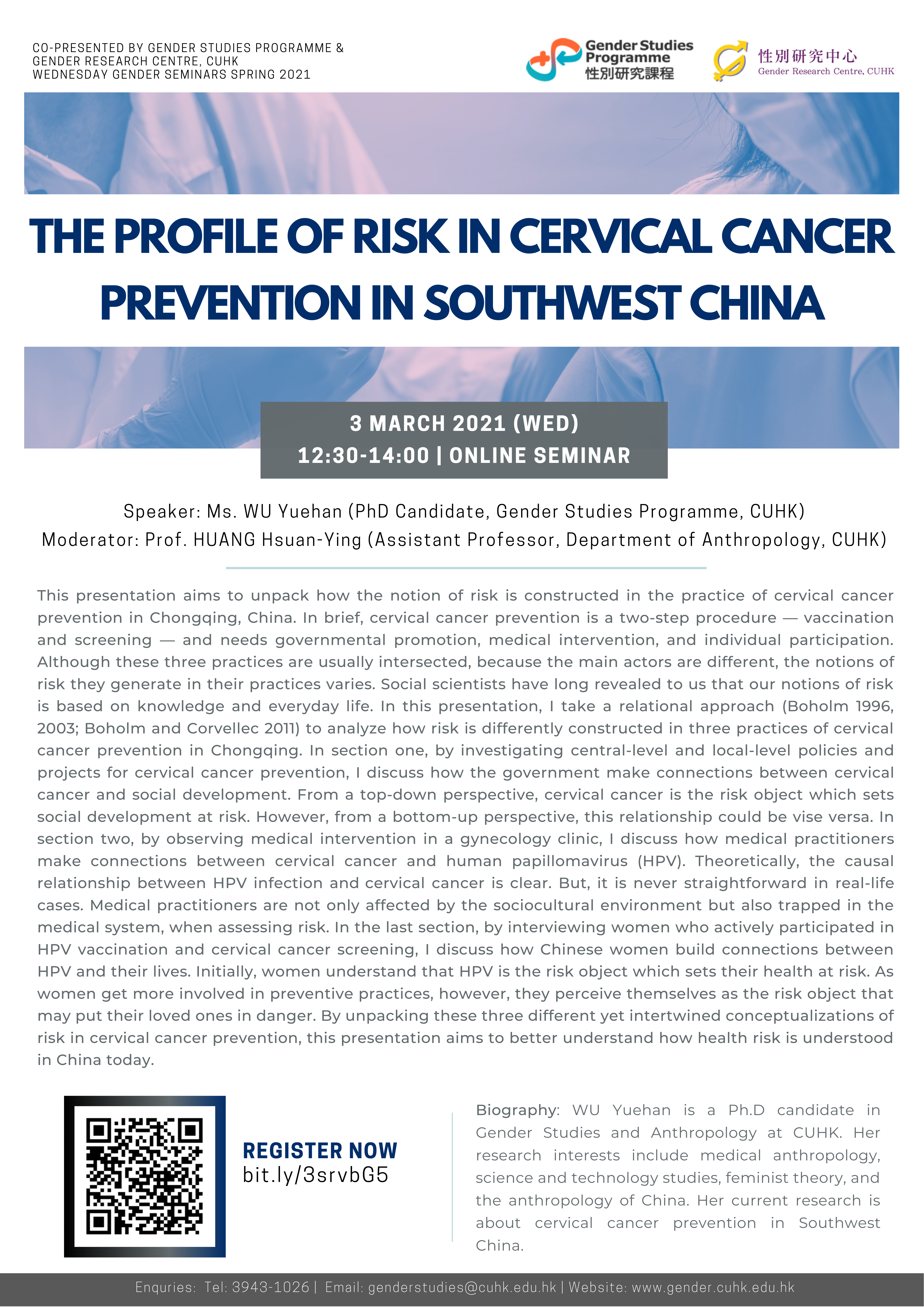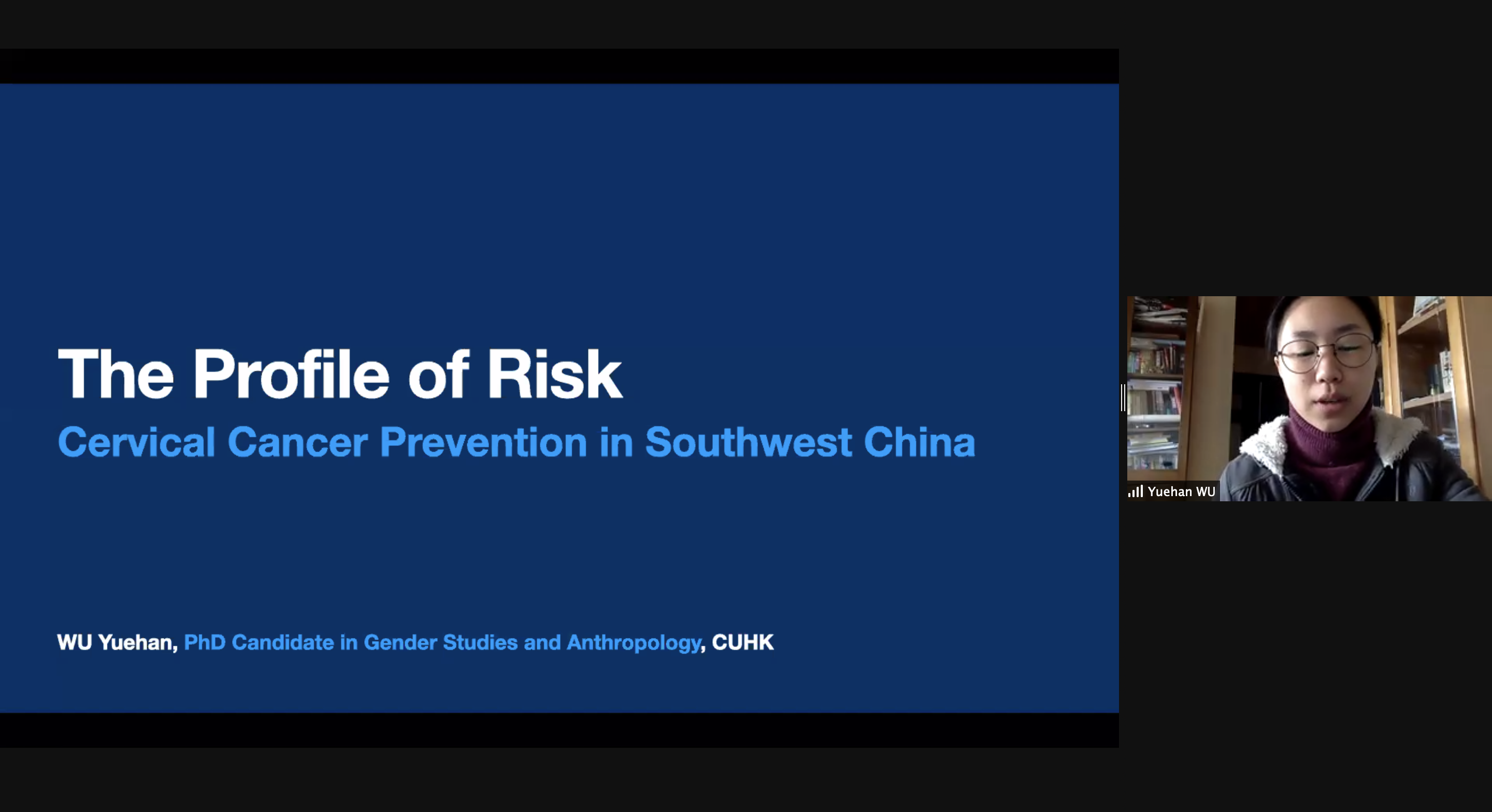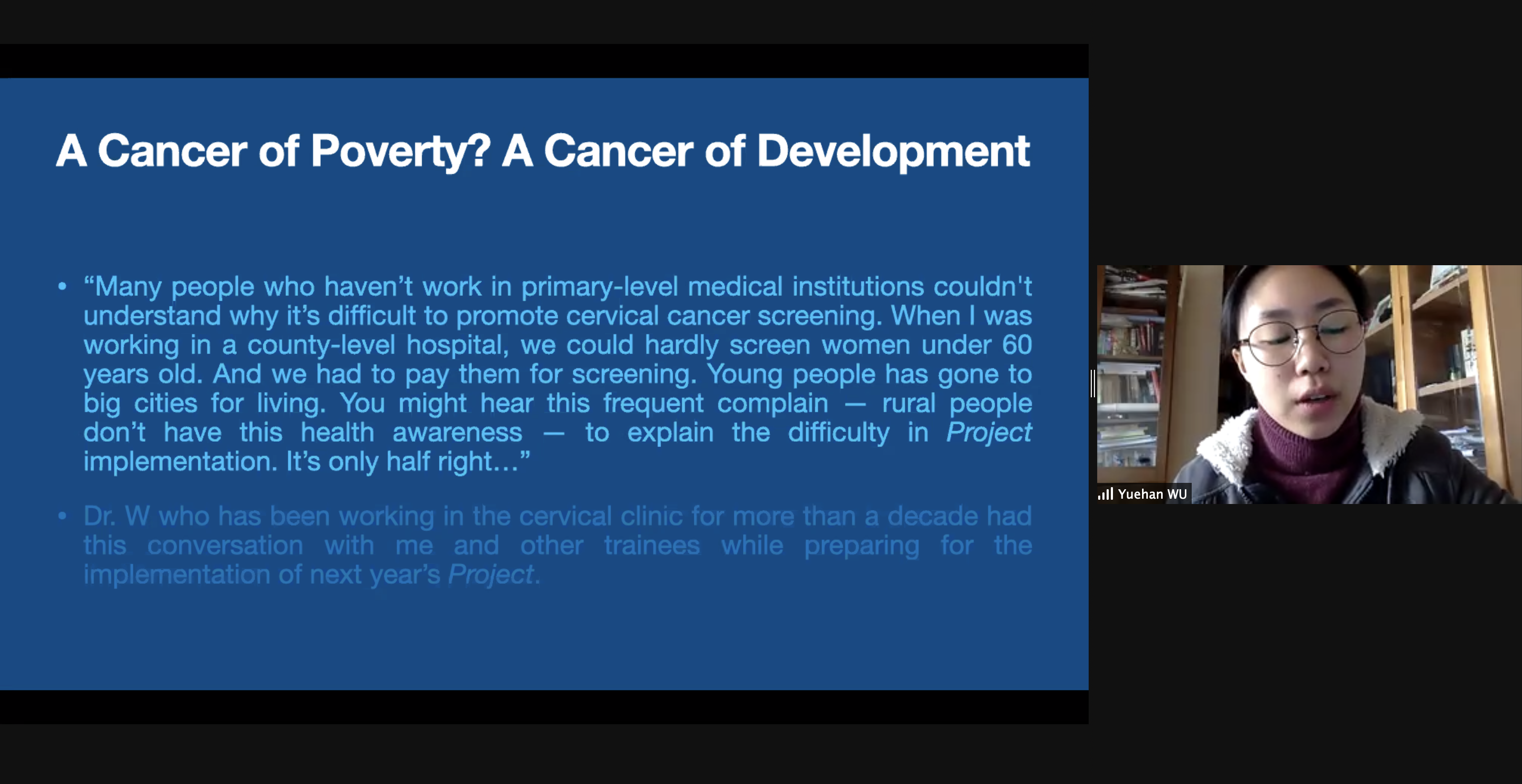During the Wednesday Gender Seminar held on March 3, 2021, Ms. WU Yuehan, Ph.D. candidate in the Gender Studies Programme and the department of Anthology at the Chinese University of Hong Kong, shares her doctoral project on cervical cancer prevention in Chongqing, southwest China.
Ms. WU Yuehan characterize the case of China on cervical cancer prevention as “a mixed phenomenon of the Global North and the Global South”. Along with the rise of pharmaceuticalization of public health, HPV tourism from the mainland to Hong Kong emerges as a unique social phenomenon among women-patients-consumers. However, underdeveloped medical infrastructure, insufficient healthcare investment, and the collusion between Big Pharma and local government in China result in 1/5 of the total death from cervical cancer in developing countries. Ms. WU Yuehan identifies three prevention strategies to cope with the burden of cervical cancers with different agents at all levels, namely, government promotion, medical intervention, and individual participation.
As an anthropologist by training, Ms. WU Yuehan utilizes ethnographic methods by interviewing patients as well as professionals and observing their interactions at a local clinic in Chongqing, southwest China. Since government-subsidized screening tests for cervical cancer are only available for rural women with local residency during a specific period of each year, migrant workers are therefore left out of the precautions. Guided by a relational framework, Ms. WU Yuehan argues that, from an authoritative perspective, cervical cancer is the risk object which sets social development at risk. In this sense, cervical cancer is more of a cancer associated with social developments for female migrant workers from rural areas than economic property. Women patients who live with human papillomavirus (HPV) always experience HPV-attached stigma such as debauchery and promiscuity, concerns and suspicions from their sexual partners, and biomedical uncertainty of whether they are infected or if they can recover. Ms. WU Yuehan ends her talk by pointing out that it is women who are at risk from a bottom-up perspective since they are the host of HPV.
— Written by TANG, Lin, PhD candidate of Gender Studies





A
A
A
Contact Us